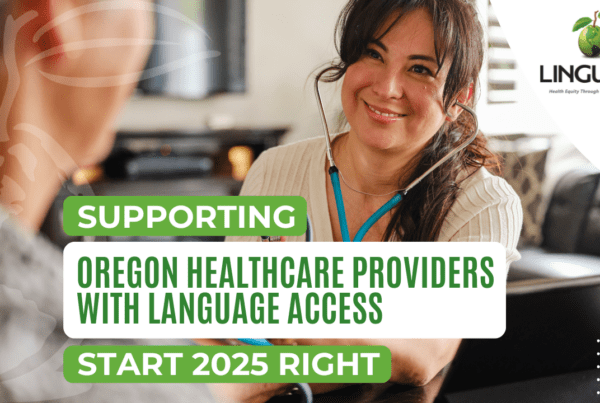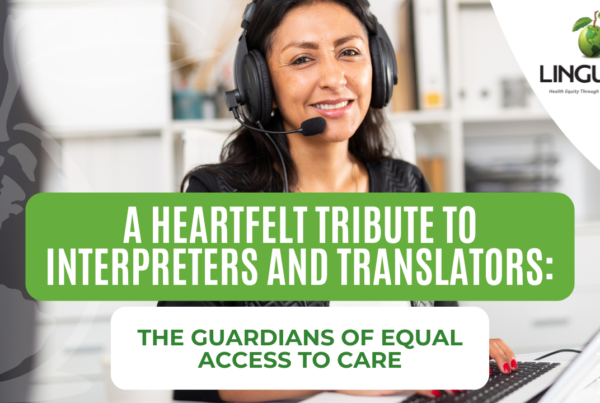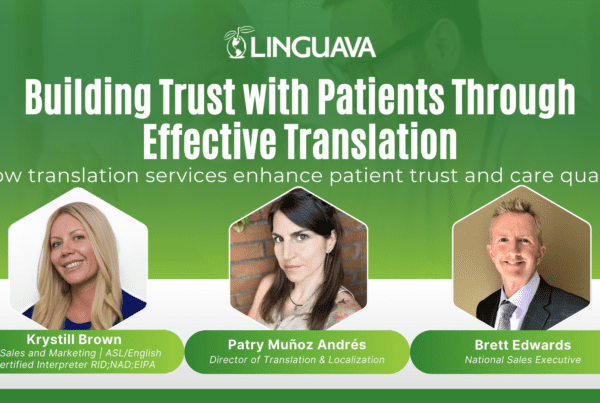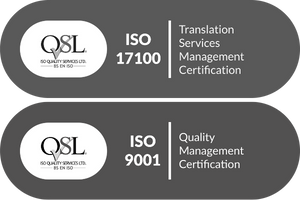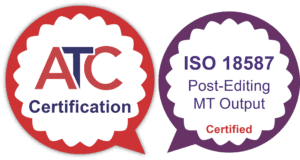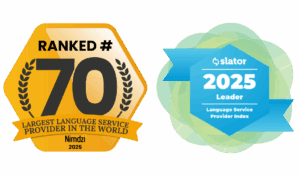In this episode of The Invisible Profession Podcast, host David Brackett sits down with special guest Roman Zelenka, founder of Wingman LLC and expert in the Translation, Localization, and Interpretation industry. Roman shares his wealth of knowledge on what medical providers should be thinking about in the new year of 2023 when it comes to Translation and Localization. Roman explains that the advancements in artificial intelligence, such as the Open AI project, can benefit the industry by increasing productivity and saving money for clients.
The translation industry is undergoing a significant shift with the integration of artificial intelligence (AI) and machine translation (MT). The advancements in technology are revolutionizing the way translations are performed and improving the speed, quality, and productivity of translation services. With the use of AI, translators have access to previously translated content, approved terminologies, and style guides, allowing them to work more efficiently and effectively.
“With AI, you can be maybe three times, maybe five times more productive and you can save a lot of money for your client.” ~ Roman Zelenka
This episode is a must-listen for anyone interested in staying ahead in the ever-evolving Translation and Localization industry.
Listen to Linguava’s podcast on all your favorite platforms here.
Connect with us on your favorite social site:
LinkedIn | Facebook | Instagram | Twitter
At Linguava, we are dedicated to reducing communication barriers and providing equity to all members of our community through language access services.
If you are interested in learning more about incorporating language access into your organization or would like to book a training session, contact us today.
Professional linguists are here for you to provide accurate and consistent translations of your documents, software, or website content. Have a document ready to translate? Upload your file and get your free quote!
Transcript – The Invisible Profession Podcast Ep. 024 – The Impact of AI on Translation with Roman Zelenka
David: Welcome everyone to another episode of The Invisible Profession Podcast. I’m your host today, David Brackett. Thank you guys so much for being here. It really means a lot to have your support as we advance in our industry that is continuing to evolve and grow, and today we get to meet with a very special guest and also a friend of mine, his name is Roman Zelenka.
He is someone who is a coach, mentor. As well as the founder of Wingman, LLC, his current company. Also has his own podcast and has led a international Translation Localization agency for over 20 years. So has a wealth of knowledge in our Translation, Localization, and Interpretation industry.
So really excited to have him on the show. Roman, welcome. Thanks for joining us today.
Roman: Thanks for inviting me, David. Thank you.
David: And for those that don’t maybe know you, tell us a little bit about where you’re at in the world right now.
Roman: Right now I’m connected from the Czech Republic and these days we have pretty much the same weather as in California.
So it’s like, instead of winter the spring has already started. So really nice to be here.
David: Excellent. Great to hear. Thanks so much for being with us. First question for you, Roman, is as we’re coming up on this new year and Happy New Year by the way, to you, this new 2023 year. What, from your vantage point, what do you think that medical providers should be thinking about when it comes to Translation and Localization looking at this year ahead?
Roman: Maybe David, if you don’t mind I would like to spend a moment and focus on a history and then I can predict what we can expect during this year.
I started in the language industry in 1998, so that was about 25 years ago and we had many evolutions. First we started to switch from typewriters to computers and that was very interesting. We started implementing CAT tools, so, Computer Assisted Translation, and that was a significant improvement. For the quality and speed of all delivered Translation jobs.
And now after 2020, I think everyone can see how dramatically artificial intelligence is improving. Just if, I don’t know if you watch the news, if you heard about Open AI project.
David: I was, I was gonna ask you, I was gonna ask you about that if you’ve had a chance to play around with that.
Roman: This is really crazy, you know, and I was always defending human translators, you know, and right now we have a technology that we can take it as a threat or as an opportunity and definitely I don’t see it so negatively. I see this new technologies as something that can benefit all of us.
And just imagine that how powerful is Google Translate these days. Something like this connected to a specific glossary for our medical client, something like this that is focused on our healthcare and it’s using the proper terminology.
This is really changing the whole industry and I think this year is crucial because there are some companies that have been already using these machine translation tools and some not. So these companies will have a really great competitive advantage if they can use it properly.
Just imagine for a while that you are a professional translator in 2023. So first I think in this new environment using AI you have something like four assistants.
The first is that you have access to all previous translations. So automatically you see on the screen according to context, what the other translator or you have translated in the past.
Then you have a second assistant. You have access to a specific terminology approved by a client. So you know the specific language of your client.
The third assistant is that you have access to style guide some instructions from your client. What tone of voice you need to use, how to talk about the company is Linguava or Linguava company, how friendly your language should be, or expert.
And now with AI just imagine that you as a future translator your text is automatically being translated and you are only correcting and editing the sentences. So with this tool, with machine translation, you can be maybe three times, maybe five times more productive and you can save a lot of money for your client.
But this is just the basics. These four assistants that can change the whole industry.
David: Very helpful the way you broke it down like that and like you said, it’s gonna be able to increase the productivity for that translator, be able to translate a lot more, saving costs on the client end.
Just expediting everything really. So it’s, it’s not removing humans and hopefully that never happens. It’s just working with the technology and being able to leverage that technology to do more together is what I’m hearing.
Roman: Absolutely. Absolutely. 100%.
David: And jumping to MT right, machine translation, what are some tips for clients out there that might be listening providers are listening that they’ve heard about machine translation. What are some tips for them to understand on how to best include that into their projects and understand how to work with the providers?
Roman: Yeah, the first thing is not a bad thing. Because, you know, we have built one of the largest Translation companies in Europe, and every time we had a claim that there is some error in the Translation, they told us, oh, you use Google Translate. This is why it’s wrong, you want to cheat us?
It’s, it’s not like that. The professional translation providers, they use Machine Translation as a, I call it, as another source to the sources that we already have. We have a Translation Memory, we have terminology, style guide, and this is just another source that is making our work as a Translation provider or translators better.
And there are different types of Machine Translation engines. It can be a generic engine. You can visit deepl.com is a great tool. Anyone can use it. You can compare it with Google Translate. For some languages it’s better. For some it’s different and there are many other generic Machine Translation tools. And you can also build your own.
As a Translation provider, if you have a big client, you can together train a new MT engine and use the benefit of it. And it’s different. It’s tailor made and you can have a better results, but it takes some investment.
David: Okay. What sort of advice would you give to someone who needs to have changes to a project and how do they work with their language service provider to make sure that those changes happen? What is sort of the best practice when it comes to edits and changes?
Roman: So first of all I would recommend to create an environment where the client can edit the final Translation and share that feedback with the Translation provider. That’s the key.
Because sometimes we deliver the Translation project and they edit that document on their own and they never get back to the Translation provider. So we don’t know what was wrong, what can be better next time. So this is crucial. Have a transparent environment and a good communication.
And I would also recommend to have an intense communication about specific terminology. So co-creating a company glossary with that client so they can have access to that glossary online. And you as a Translation provider and your translators, you can co-create the terminology list or the glossary together.
David: For providers that are looking for a new Translation agency or thinking about adding another vendor to their list. From your perspective, you’ve had a one of the largest Translation localization companies in Europe for over 20 years, and what should they be looking for specifically? What are maybe a few attributes or tips that you could give them to make that decision making process easier?
Roman: There are many really quality providers out there, and you can check their references, certification, and so on. But I would maybe mention some tips. How to build that relationship as a Translation buyer and you choose a new provider.
What is worth it, and I think you should as a Translation buyer spend some time, energy, and money into that relationship. By time, I mean spend time on giving instructions to your provider. Some specifics, tone of voice and the ideas what we mentioned/ invest energy, meet them on a personal level, you know, we are humans, we are not machines. So I think we, it’s is a good investment to have some relationship together. And I would also invest some money to, you can get your style guide, your glossary prepared from the Translation provider. They can do the work. You can just approve it. It’ll definitely pay off.
And then you can also, with your Translation provider, you can experiment together. As I mentioned, you can train your own MT engine, if that makes sense. Or just decide together it’s not your thing so you can focus on something else. And, what I like and what I was always defending is to create a win, win, win environment. Where your provider can earn money, their linguists like to work for them. And you as a Translation buyer, you save some time and money for repetitions, for using the Machine Translation, etc. And every quality provider will give you that information and all discounts thanks to the money they can save thanks to the latest technology.
David: So win, win, win ultimately sounds like what I’m hearing is based in relationship on all accounts, right? Relationships with the translators you’re working with, and that there’s the proper treatment there. So they really take ownership of that project. Relationship with the provider and vice versa.
It’s what it all comes down to. It sounds like 2023 looking at relationship, marrying with technology, and being able to really work together.
Roman: Yeah, I agree and you know, when you have that relationship with your Translation provider, they can educate you.
You don’t need to search about the latest AI and they can do the research. They can give you some information, what is the best option you can experiment together. You know, I always, and I think that was the key of our success. Even we are an external vendor for the client, but we were working like we are some Translation department of that company.
I think that’s, that’s crucial. To be really close with your client and because we have so many innovations in technologies and AI just research together, practice together and, grow together.
David: Yeah, that’s so true. If you had to leave our community here, our audience today with one truth that you have found to be true in your experience. What would that one be?
Roman: Oh, that’s a tough question, but okay. I will mention something that applies to anyone, and to our personal life and also to a business, because I like to mention and to encourage people to be brave, bold, and authentic. And by being brave. I mean, just, you know, be brave to stand out from the crowd. You don’t have to be like other companies, like other people.
Just be original. Be imperfect, be bold. Be unique, be extraordinary. Use your gifts and be authentic. There is no one like you. I think that’s the key to being successful, being happy, and also having a successful business.
David: There we have it. Bold, brave, and authentic. The recipe for a successful 2023 year and beyond.
Wow. This is wonderful, Roman. Thank you so much for being here with us today and sharing a little bit of the knowledge that you’ve accumulated over so many years in our industry.
Roman: Thank you, David. It was a pleasure.
David: It was a pleasure, and we’ll talk soon.


